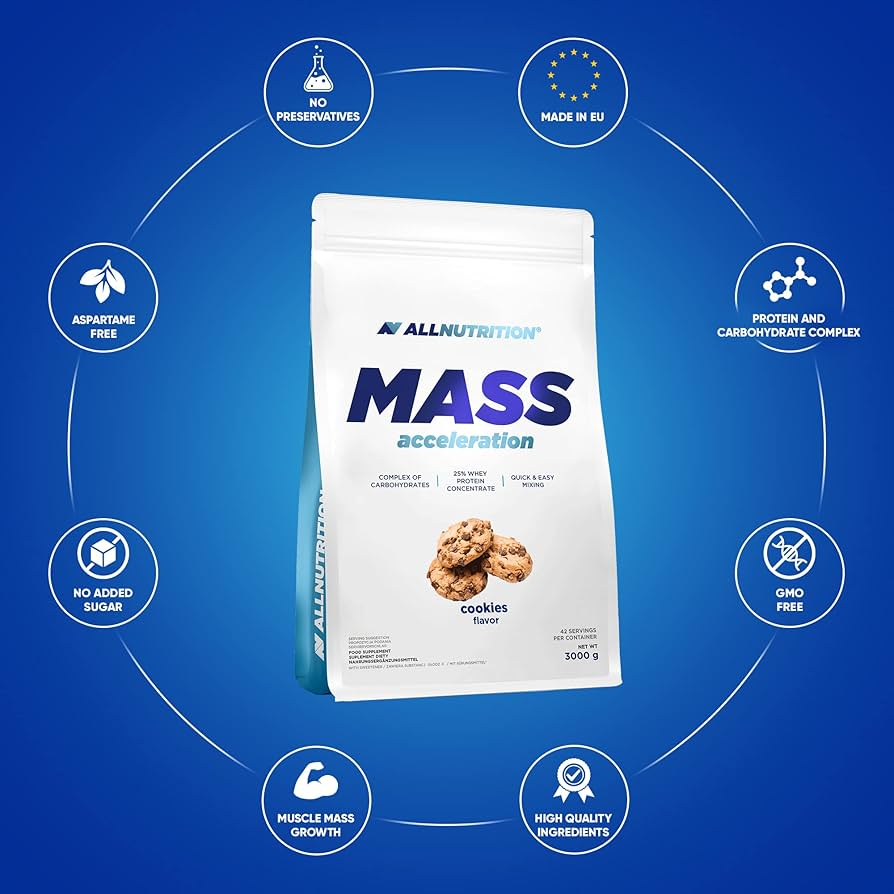
 Instagram
Instagram
Which Yogurt is Best for Weight Loss?


Related products
Yogurt has garnered significant attention in the realm of weight loss and fitness. Its increasing popularity is not unfounded; numerous studies have linked it to various health benefits, particularly in the context of weight management. This article aims to delve into the intricacies of yogurt, focusing on its various types and assessing which may be most conducive to weight loss. The intent is to provide a clear, evidence-based perspective on yogurt's role in weight loss diets.
What is Yogurt?
Yogurt is a dairy product produced through the bacterial fermentation of milk, primarily using cultures of Lactobacillus bulgaricus and Streptococcus thermophilus. The fermentation process converts lactose, the sugar in milk, into lactic acid, which acts on milk protein to give yogurt its texture and characteristic tart flavor.
Nutritional Profile of Yogurt
Yogurt is nutritionally rich, offering a blend of essential nutrients. It is a notable source of protein, vital for muscle maintenance and growth. Dr. Emily Moore, a nutritionist, states, "Yogurt's protein content contributes to its satiating effect, making it a smart choice for weight management." Additionally, yogurt provides calcium, crucial for bone health, and is often fortified with vitamins D and B12.
Yogurt is also famed for its probiotics - beneficial bacteria that support gut health. Dr. Sarah Johnson, a gastroenterologist, explains, "The probiotics in yogurt contribute to a healthy gut microbiota, which is increasingly being linked to effective weight management."
Yogurt in a Balanced Diet
Incorporating yogurt into a balanced diet can offer numerous health benefits. Its nutrient-rich profile supports various bodily functions. However, as with any food, moderation is key. The choice of yogurt - considering factors like sugar content and added ingredients - is crucial in ensuring these benefits are harnessed effectively, particularly in the context of weight loss.
Yogurt and Weight Loss
Yogurt's Role in Weight Loss
Yogurt can play a significant role in weight loss strategies. Its high protein content contributes to satiety, potentially reducing overall calorie intake. A 2018 study published in the Nutrition Journal found that participants who included high-protein yogurt in their diet experienced enhanced weight loss, compared to those who did not.
Probiotics and Weight Loss
The probiotics in yogurt are not just beneficial for gut health; they may also influence weight loss. Dr. Johnson notes, "Certain strains of probiotics found in yogurt have been associated with modest reductions in body weight and fat percentage." However, she cautions that probiotics should not be seen as a weight loss miracle, but rather as part of a holistic approach to health.
Scientific Evidence Supporting Yogurt in Weight Management
Research has consistently supported the role of yogurt in weight management. A comprehensive review in the American Journal of Clinical Nutrition concluded that yogurt intake is associated with lower body mass index, reduced weight gain, and a smaller waist circumference. This is attributed to its nutrient composition and the potential role of probiotics in regulating body weight.
In conclusion, yogurt, with its unique blend of nutrients and probiotics, offers promising benefits for those seeking to manage their weight. However, the choice of yogurt and its integration into a diet must be considered carefully to fully realize these benefits. The following sections will further explore the types of yogurt available and their specific impacts on weight loss.
Which Yogurt is Best for Weight Loss?
The best yogurt for weight loss is typically Greek yogurt. Its high protein content promotes satiety and muscle maintenance, while its lower carbohydrate level compared to regular yogurt makes it a preferable choice for those aiming to lose weight. However, the ideal choice can vary based on individual dietary needs and preferences.
Types of Yogurt
Regular Yogurt
Regular yogurt, typically made from whole or skim milk, is a staple in many diets. Nutritionally, it provides a balanced profile of carbohydrates, proteins, and fats. A standard serving contains approximately 5% protein, making it a moderate source. However, regular yogurts often contain added sugars, reducing their suitability for weight loss diets.
Greek Yogurt
Greek yogurt is distinguished by its higher protein and lower carbohydrate content, achieved through a straining process that removes whey and lactose. It contains about double the protein of regular yogurt, making it a more filling option that can aid in muscle maintenance and satiety. Dr. Moore comments, "Greek yogurt's protein-density makes it a preferable option for those looking to lose weight while maintaining muscle mass."
Icelandic Yogurt (Skyr)
Skyr, a type of Icelandic yogurt, is similar to Greek yogurt but often has a thicker consistency and a milder flavor. It is exceptionally high in protein, low in fat, and rich in calcium. Its unique straining process not only concentrates the protein but also reduces lactose content, making it easier to digest for those with lactose intolerance.
Non-Dairy Yogurts
For individuals who are lactose intolerant or follow a vegan diet, non-dairy yogurts made from almond, soy, or coconut are available. These alternatives vary in their nutritional profiles, with some being higher in added sugars and lower in protein. It is essential to select versions fortified with calcium and vitamin D to match the nutritional benefits of dairy yogurts.
Flavored vs. Plain Yogurt
Flavored yogurts, while appealing, often contain added sugars, which can be counterproductive in a weight loss diet. Plain yogurt, in contrast, provides the benefits of yogurt without the unnecessary sugar content. Nutritionist Emily Moore advises, "Opting for plain yogurt and adding fresh fruit can provide the sweetness while keeping the sugar content in check."

What to Look for in a Weight Loss-Friendly Yogurt?
Selection Guidelines
When selecting yogurt for weight loss, prioritize options low in sugar and high in protein. Live cultures are also essential, as they contribute to gut health. It's important to scrutinize nutrition labels and ingredient lists to avoid hidden sugars and unnecessary additives.
Importance of Nutrition Labels
Nutrition labels offer invaluable information about a yogurt's macronutrient profile and ingredient list. Understanding these can guide individuals towards making healthier choices that align with their weight loss goals.
Portion Size Recommendations
Portion control is crucial in a weight loss diet. A typical serving size of yogurt should be around 150 to 200 grams, which can provide a significant amount of protein without excessive calories.
Incorporating Yogurt into a Weight Loss Diet
Practical Ways to Include Yogurt
Yogurt can be incorporated into meals and snacks in various ways. It can be used as a base for smoothies, a substitute for sour cream, or mixed with fruits and nuts for a healthy snack.
Yogurt-Based Recipes
There are numerous recipes where yogurt can play a central role, such as in dressings, dips, or as a marinade for proteins. Using Greek or Skyr yogurt in recipes can increase the protein content of meals, aiding in weight management.
Avoiding Pitfalls
One common pitfall is the addition of high-calorie toppings like granola or sweetened fruit compotes. Opting for natural, low-calorie toppings like fresh fruit, spices, or a small amount of honey can help maintain the health benefits of yogurt.
Expert Opinions and Dieter Experiences
Nutritionists and dieticians emphasize the role of yogurt in a balanced diet. Dr. Moore suggests, "Including a variety of yogurt types can cater to different nutritional needs and preferences while aiding in weight loss." Real-life success stories further underscore the versatility and effectiveness of yogurt in weight loss diets. For example, a case study featured in a 2020 dietary journal showed significant weight loss in individuals who replaced higher-calorie snacks with yogurt.
In conclusion, understanding the types of yogurt and how to incorporate them wisely into a diet can significantly contribute to weight loss objectives. The key is to choose the right type of yogurt and be mindful of portion sizes and additions.
Conclusion
The exploration of yogurt's role in weight loss diets reveals several key points. Firstly, the nutritional profile of yogurt, rich in protein, calcium, and probiotics, positions it as a valuable component of a balanced diet. Regular yogurt offers a moderate protein content with potential added sugars. Greek yogurt, with its higher protein and lower carbohydrate content, emerges as a particularly beneficial choice for those aiming to lose weight while maintaining muscle mass. Icelandic yogurt, or Skyr, provides a similar high-protein benefit with a unique texture and taste. Non-dairy alternatives like almond, soy, and coconut yogurt cater to those with lactose intolerance or vegan preferences, though their nutritional profiles vary and require careful selection.
The choice between flavored and plain yogurt is crucial, with the latter being preferable in a weight loss diet due to lower sugar content. When selecting yogurt, key factors to consider include low sugar content, high protein levels, and the presence of live cultures. Understanding and paying attention to nutrition labels and ingredient lists is vital in making informed choices. Portion control also plays a significant role in integrating yogurt into a weight loss diet effectively.
Incorporating yogurt into daily meals and snacks can be done creatively, using it in smoothies, dressings, or as a healthy snack with fruits and nuts. However, caution is advised to avoid high-calorie toppings that can negate the benefits of yogurt in weight loss.
The article's examination of yogurt in weight management is supported by expert opinions and real-life dieter experiences, underscoring its versatility and effectiveness. Nutritionists highlight the importance of choosing the right type of yogurt based on individual dietary needs and preferences.
In conclusion, while yogurt can be a valuable ally in weight loss, the best type of yogurt for an individual depends on their specific dietary requirements and tastes. Experimenting with different types of yogurt and mindful incorporation into the diet can help in discovering the most suitable and enjoyable way to include this nutritious food in a weight loss journey. This approach not only aids in achieving weight management goals but also contributes to an overall healthier and more balanced diet.















 Rated Excellent by 26,523+ Reviews
Rated Excellent by 26,523+ Reviews